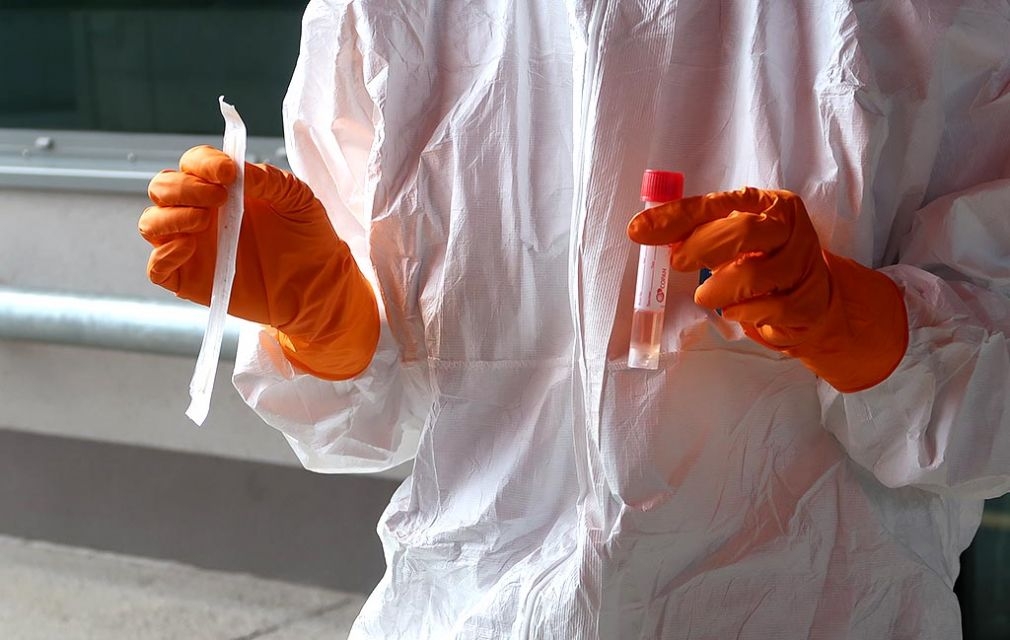Slovenia is to launch a comprehensive random population testing for Covid-19 on Monday after invitations to take part have been sent to 3,000 people picked in a representative sample.
The first such survey in Slovenia is to give the authorities a reliable estimate of the extent of the coronavirus epidemic in the country and help them plan the way out of the lockdown.
The sample of people to be tested has been prepared by the Statistics Office (SURS) in cooperation with the Ljubljana Faculty of Social Sciences.
SURS says the sample consists of randomly selected 3,000 residents of Slovenia of all ages and is representative by age, gender and territorial breakdown of Slovenia.
In the first phase, SURS randomly selected 300 areas in Slovenia and in the second ten people from each of those areas were picked.
This way the survey results should enable generalisations regarding the extent of the spread of the novel coronavirus in Slovenia’s entire population, SURS said.
Miroslav Petrovec, the head of the Institute for Microbiology and Immunology at the Ljubljana Faculty of Medicine, has told the STA that quite a few people have contacted them in recent days expressing their wish to be involved in the survey.
However, Petrovec says that, to ensure a representative sample, only those who have been invited can take part, but not their relatives or neighbours instead of them or those who might like to.
Nevertheless, the expert, who is a member of the Health Ministry’s advisory group, did not rule out the possibility of a survey being conducted based on voluntary applications in the future.
Petrovec called on everyone who does get the invitation – these were sent out after the national commission for medical ethics gave its final go-ahead on Friday – to respond to the contact telephone number or e-mail address.
Those agreeing to testing will be visited by technicians at home, to be swabbed for the presence of the virus SARS-COV-2 as well as give blood samples for a serological test for antibodies. “Giving samples will not hurt,” Petrovec promised.
Asked what would happen in case of insufficient response from those invited, Petrovec said they did not expect such a scenario.
“I believe in rationality and good faith of the people taking part because in this way they can do a lot for their fellow citizens at this moment, to help reopen the country as soon as possible.”
The taking of swabs and blood samples could start on Monday, but Petrovec was reluctant to predict when it could complete because this will depend on people’s cooperation.
He would like for the testing to be performed within a week, and they are planning to have the results ready before the May Day holidays.
The testing will be conducted by ten teams, each comprising a health professional trained to take swabs, and a member of the Institute for Microbiology and Immunology who will be responsible for personal data protection.
Petrovec says that the cost of the survey is hard to estimate at this stage, but promises the costs will be transparent and released publicly. Reagents alone will cost about EUR 150,000.
The state has already secured the funds for reagents and Petrovec expects it will also cover other costs associated with the survey, since the survey will serve the state.
Petrovec believes that data on the scope of the virus’s spread will be needed by all countries that want to ease lockdown restrictions.
“We can open the country without them as well but this would be risky and cold lead to a new shutdown. Such a risk cannot be fully ruled out but if decisions are based on objective data, we can take measured steps,” which Petrovec believes is absolutely worth the cost and effort.
While random tests are being planned by other countries and have already been conducted in Austria, Petrovec said Slovenia’s would be the first such comprehensive test in Europe.
Austria’s study was looking at the proportion of the infected population, while Slovenia’s will also show how many people have recovered from the infection based on antibodies in their blood.
Explaining, Petrovec noted that the population includes those who have got over Covid-19 but have not been diagnosed with the disease.
There have been hundreds or even up to a thousand people a day who have been sent from entry points to self-isolation for whom it cannot be said whether they recovered from Covid-19.
They would also like to get answers to speculation about the large number of infected people without symptoms.
Those involved in the survey will also be invited to stay in the study so that their blood samples can be tested again after six months.
As of Saturday, Slovenia recorded 1,330 confirmed coronavirus cases and 74 Covid-19 deaths.

